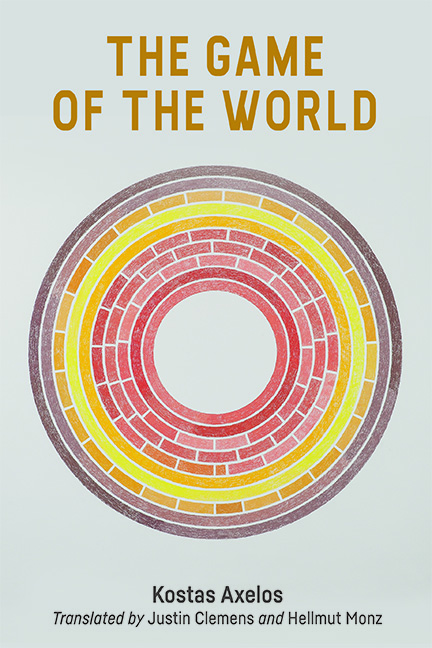Book contents
- Frontmatter
- Contents
- Translators’ Introduction
- Prelude
- Opening. The Great Powers and the Elementary Forces of the World
- I Logos. The Language and Thought of Man and the World
- II That. The Play of the Being in Becoming of the Fragmentary and Fragmented Totality of the Multidimensional and Open World
- III God-Problem
- IV Physis. The Cosmic World
- V The Human in the World
- VI World History
- VII The World of Poetry and Art
- VIII Being-Nothingness, Everything-Nothing, the Unworldly World
- IX The Game of the World
- Notes
- Analytical Table
VI - World History
Published online by Cambridge University Press: 17 November 2023
- Frontmatter
- Contents
- Translators’ Introduction
- Prelude
- Opening. The Great Powers and the Elementary Forces of the World
- I Logos. The Language and Thought of Man and the World
- II That. The Play of the Being in Becoming of the Fragmentary and Fragmented Totality of the Multidimensional and Open World
- III God-Problem
- IV Physis. The Cosmic World
- V The Human in the World
- VI World History
- VII The World of Poetry and Art
- VIII Being-Nothingness, Everything-Nothing, the Unworldly World
- IX The Game of the World
- Notes
- Analytical Table
Summary
The human is in history and not history in the human.
Due to a mental, and not only mental, habit, due to a historical behaviour with its provenance and roots, we almost naturally distinguish two domains in the totality of what is and is done: nature and history. In other terms: the order and cosmic rhythm that exist without us, and the order and the historical becoming that we constitute. This cut, well rooted, does not take account of the fact that nature and history are each the horizon of the other. Neither is the other, but each is inseparable from the other, both deployments of the Same. It is in and from the cosmic nature that human history develops itself, and it is in and from it that nature reveals itself and is transformed by us humans. Human history seems almost to want to suppress all naturalness, to abolish, so to speak, nature. But nature can also engulf human history: the errant course of uninhabited stars can continue. In whose eyes?
Everything has not only its history, but also its prehistory.
What exactly does the stationary state of what we designate as belonging to prehistory or remaining outside history indicate? How far does the mutation produced by writing go?
There is no first catastrophe that one can grasp.
It is in a horizon of apparent scarcity that human history is inscribed.
The common origin of humanity is no more problematic than its common aim. At the antipodes of the same planet, diverse types are searching for their past and future archetype.
What does Hölderlin hear and see when he writes: ‘So the word came from the East to us.’ Calling: is it an oriental word?
Orientalism is an occidental product.
The Greeks remain apart in all universal history.
The Graeco-Roman, the Judaeo-Christian, the European-modern, the global-planetary, each of these paths (and ways) remains dominated by Latin, the Roman.
History is history of the dead, the living and the surviving.
Every told history contains a great deal of fiction.
Would history – as ‘science’ – let us recognise the ‘human’, more than the past and the present?
Doesn’t history teach you, at least, that it doesn’t teach you very much?
Insofar as it is the work of memory, history is forgetting, conquests are made on the basis of losses, continuity is crossed in dotted lines by discontinuity.
- Type
- Chapter
- Information
- The Game of the World , pp. 321 - 360Publisher: Edinburgh University PressPrint publication year: 2023



